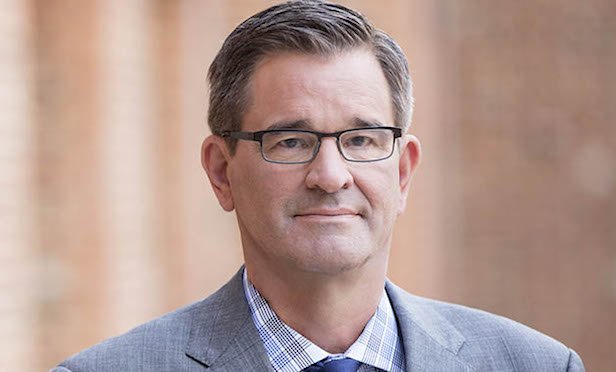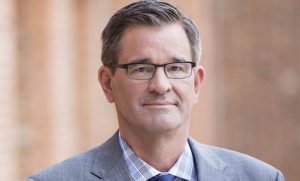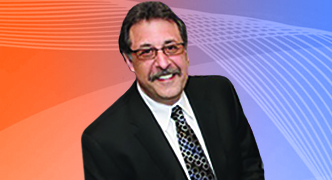-
 Navigating the Shifting Landscape of Commercial Lending in Today's Market Explore the dynamic trends reshaping commercial lending, including tailored financial solutions, regulatory compliance, and technology integration, with insights into the latest industry strategies.
Navigating the Shifting Landscape of Commercial Lending in Today's Market Explore the dynamic trends reshaping commercial lending, including tailored financial solutions, regulatory compliance, and technology integration, with insights into the latest industry strategies.

matt
Top Georgia-Based Broker Joins Atlantic Home Mortgage
- Tuesday, 22 January 2019

[caption id="attachment_9283" align="alignright" width="251"] Naveed Bhurgri[/caption]
Naveed Bhurgri[/caption]
Naveed Bhurgri has joined Atlantic Home Mortgage as a partner from Bluestone Capital Group, a boutique mortgage brokerage he founded in 2006.
“Naveed brings with him almost 20 years of experience and will be a tremendous asset as we work toward our goal of reducing the amount of time needed to obtain a mortgage by 80%," said Tony Davis, founder of Atlantic. "During his years in the industry, he has been ranked as one of the top-producing mortgage advisors, consistently closing in excess of $30 million annually." With the addition of Bhurgri, production at Atlantic could rise as high as $100 million.
During the mortgage meltdown, when many brokerages were exiting the business, Bhurgri opened Bluestone and increased production every year since inception, according to the firm. He leveraged cutting-edge technology to enhance the origination process as well as strong client support to borrowers and business partners.
Bhurgri began his career as a mortgage advisor in 2003. Within the first year, he became a top producer, often ranking No. 1 in his branch and among the top five in Georgia. He soon moved to a management role and helped guide his division to closings of over $100 million each year.
"I'm delighted to partner with Tony to achieve our shared vision of growing a lending institution by leveraging innovative technologies and providing our clients the absolute best service available, making sure we always exceed expectations," said Bhurgri. "There's a lot of hard work ahead for both us and our teams, but we're excited about the challenge.”
Read more...
Fannie Mae Expects Home Sales to Stabilize, Fewer Rate Hikes
- Tuesday, 22 January 2019

Fannie Mae expects home sales to stabilize in 2019 after falling in 2018, according to the Fannie Mae Economic and Strategic Research Group’s January 2019 Economic and Housing Outlook.
Mortgage rates are expected to change little in 2019 from their level late last year of around 4.5 percent, allowing potential homebuyers time to adjust to the rate environment after the volatility experienced in 2018.
[caption id="attachment_9271" align="alignright" width="300"] Doug Duncan[/caption]
Doug Duncan[/caption]
"The Fed’s continued efforts to unwind expansionary monetary policies implemented during the recession have the potential to add to the headwinds facing the economy,” said Fannie Mae Chief Economist Doug Duncan. “However, we believe that contained price pressures should afford the Fed sufficient latitude to slow or pause rate hikes this year. This will allow the economy to continue growing, albeit at a slower pace, and housing to regain its footing.”
A slower pace of house price appreciation (4.2 percent in 2019 from 5.5 percent in 2018, according to the Federal Housing Finance Agency purchase-only home price index), and stable rates should make and buying a home more affordable and increase buyer confidence.
At the same time, Fannie’s forecast for continued job growth implies that the unemployment rate will remain near historic lows--a positive for wage growth and affordability. It expects single-family starts to grow modestly in 2019 as home buying firms. Although labor shortages will likely continue to frustrate builders, lower interest rates should help contain their borrowing costs. However, solid labor market conditions and favorable demographic trends, including household formations by Millennials, are expected to provide support to the multifamily sector in 2019.
Total residential investment, which includes new construction and home improvement spending as well as brokerage fees, is projected to rebound this year after contracting last year for the first time in seven years.
According to The Summary of Economic Projections released at the December 2018 Federal Open Market Committee, the Federal Reserve anticipates fewer rate hikes. The median federal funds rate projection in December implied two rate hikes in 2019, compared with the September projection of three. The federal funds futures contracts that trade on the Chicago Mercantile Exchange implied no Fed rate increases in 2019, according to Fannie’s analysis.
In addition, the minutes of the December FOMC meeting showed a dovish shift in the Fed’s thinking. The Fed still expects “further gradual increases” in the federal funds rate but acknowledged that it can “afford to be patient about further policy firming.” In addition, Fed Chairman Powell has noted the partial government shutdown will postpone data releases, making it difficult for the Fed to assess the economy.
Read more...How Not Being Available 24 Hours a Day Can Increase Production
- Monday, 21 January 2019

By Brian Sacks
My guess is that you were probably trained to always return your phone calls immediately, and that you should be available 24 hours per day, seven days a week, to succeed as an originator.
Am I right?
I know that’s how I was trained many years ago. In fact, it was so long ago that I had a pager and always carried around a roll of quarters, so I could use a pay phone to return calls.
Also, you were told to be seen as an expert, right?
Maybe more than all other trainers or originators, I have preached the idea of being an expert by picking a niche and letting everyone know about it. But here is the problem: Experts never return calls in the evenings or weekends.
They never return them immediately either. Usually they have a secretary or assistant that handles these tasks for them. I realize you and I probably don’t have that luxury--but please pay attention because your actions send messages.
Think about your accountant, attorney, doctor, dentist or any other professional that you go to. They aren't immediately available to clients. So, let’s discuss what not to do and why:
- Being accessible 24/7/365:
First, this will lead you to be burnt out and feeling grumpy. You need set hours people can reach you. If you feel that you must be available like a Seven Eleven than you have a lead generation and conversion problem to fix. - Immediately returning all calls:
When you pick up the phone the second it rings you are subconsciously telegraphing that you are desperate. Busy people never pick up the phone the minute it rings. Please don’t think that means giving bad service. It doesn’t.
You should return all calls within a reasonable time frame, an hour or less, but it’s a good idea to keep people waiting and have, at the very least, the appearance of being busy.
The other issue with answering calls, immediately, is that you rush people off the phone, and they notice that. Most don’t appreciate it and will often go elsewhere. Sometimes, this rush might also cause you to forget important facts or miss certain issues critical to the loan approval.
If you are trying to be seen as the mortgage expert in your local city, which I highly encourage, then you must first start acting like an expert would. If your business is not quite where you need it to be, then I know this will be difficult.
But it’s more important to do when you are slow because your positioning with your clients, prospects and referral sources is critical to your success. Next time the phone rings, let it go to voicemail.
Oh, and speaking of voice mail, it would be a great idea to let people know the hours and days you are available on your message, so you can set expectations, boundaries--and your status as the expert.
About the Author
Brian Sacks, is a national mortgage expert with Homebridge Financial Services Inc. in Owings Mills, Md. During his 30 year career, he has closed 8,000 loans in excess of 1 billion. You can learn more about his new book, “48 Proven Ways To Immediately Grow Your Production” at https://48waysbook.com/special.
Read more...


